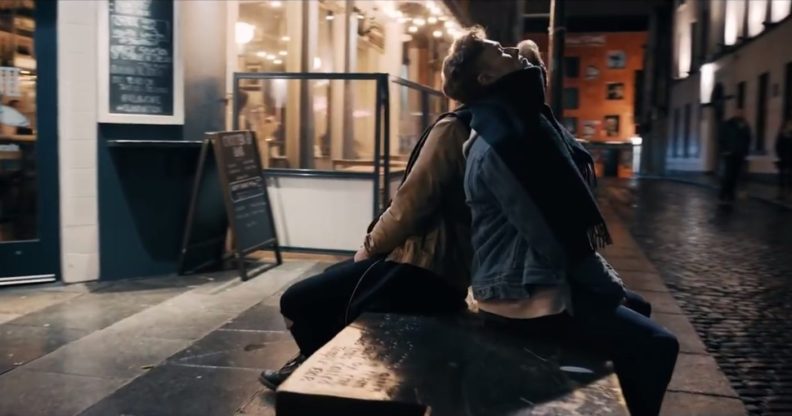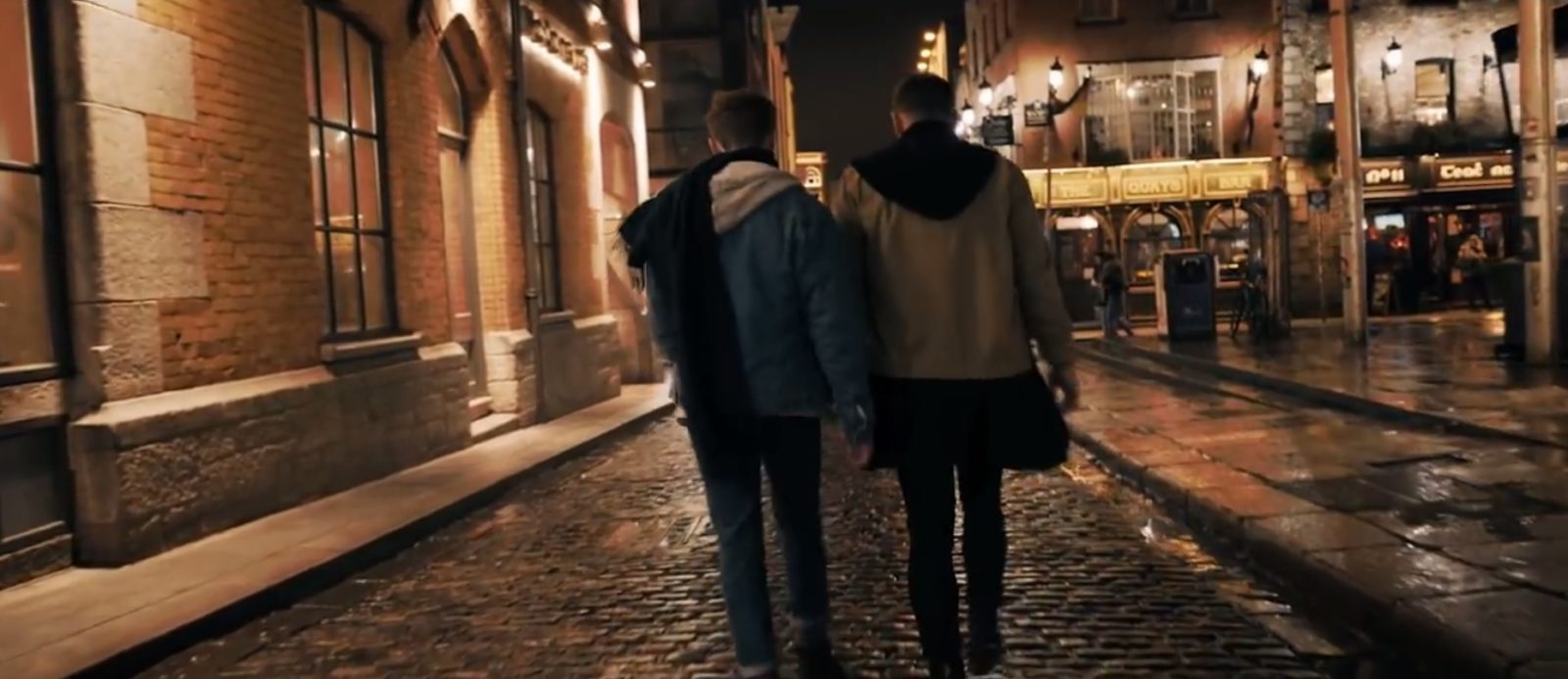Russia could refuse to broadcast Ireland’s Eurovision entry over gay romance

Russia could refuse to broadcast Ireland’s Eurovision entry if it features same-sex dancers.
Ireland this month unveiled its entry for the 2018 Eurovison Song Contest, with former Britain’s Got Talent finalist Ryan O’Shaughnessy set to represent Ireland with the song ‘Together’.
The ballad is about a former lover – and while the lyrics do not explicitly reference their gender of the lover, the official music video reveals that the song is about a same-sex couple.
But the entry could lead to a showdown with Russia, which has a famous law banning ‘gay propaganda’.
It is unclear if the live performance itself will feature same-sex dancers – but Russia has threatened to block the broadcast of the performance if it does.
Eurovision rules state that each country’s broadcaster must air all the entries in full, and cannot censor any of the performances.

Singer Ryan O’Shaughnessy himself hit out at the news.
He tweeted: “The Russians are now threatening a broadcasting ban because of my video for ‘Together’. Anti-gay propaganda regime at its finest! Hilarious if you ask me.. #IDareYou”
The row comes amid heightened tensions between Russia and much of Europe.
It did not participate in the 2017 Eurovision Song Contest in Ukraine, after picking a singer who had flouted Ukrainian law to illegally visit Russian-occupied Crimea.
There have been several LGBT contestants and performances at Eurovision in the past, but sentiment in Russia has grown much more extreme since the passage of its anti-gay propaganda law.

In 2013, Finland’s entry Krista Siegfrids kissed a female backing dancer on stage as an equal marriage protest during her track Marry Me, which was aired in Russia.
Russia also aired Austrian drag queen Conchita Wurst’s 2014 entry Rise Like a Phoenix, as well as her performance in 2015.
After Conchita’s win, Russian lawmakers called for the country to drop out of the ‘Eurovision Sodom show’.
Russian lawmaker Vitaly Milonov, who masterminded the country’s ‘gay propaganda law’, has repeatedly called for Russia to withdraw from the contest due to its gay content.
Milonov labelled the contest the “Eurovision sodom show”, saying: “Even just broadcasting the competition in Russia could insult millions of Russians.
“The participation of the obvious transvestite and hermaphrodite Conchita Wurst on the same stage as Russian singers on live television is blatant propaganda of homosexuality and spiritual decay.”
At this year’s contest Russia is set to be represented by Yulia Samoylova, the same singer who was banned from the 2017 contest in Ukraine.
Samoylova, a wheelchair-bound singer, will perform track ‘I Won’t Break’.
The Irish entry’s video features dancers Alan McGrath and Kevin O’Dwyer as a couple on a date walking through the streets of Dublin’s Temple Bar – before busting out in an emotional same-sex dance routine.
The video was directed by Christian Tierney, choreographed by Ciaran Connolly.
Speaking to RTE previously, O’Shaughnessy said: “It was amazing seeing the video come to life in the way it did, sticking with the original concept that love is universal and there are testing moments in every relationship.
“I can’t wait for all Eurovision fans to hear the track and check out the video!”
He added: “For years my family has been involved in Eurovision. My uncle [Gary O’Shaughnessy] sung in 2001 for Ireland. It’s been in the pipeline.
“My mam said to me every year ‘you have to enter a song this year’ and I never really did. It was always kind of pushed back.”
The boss of the Eurovision Song Contest recently hinted at early plans for a spin-off contest that could feature all 50 US states.

